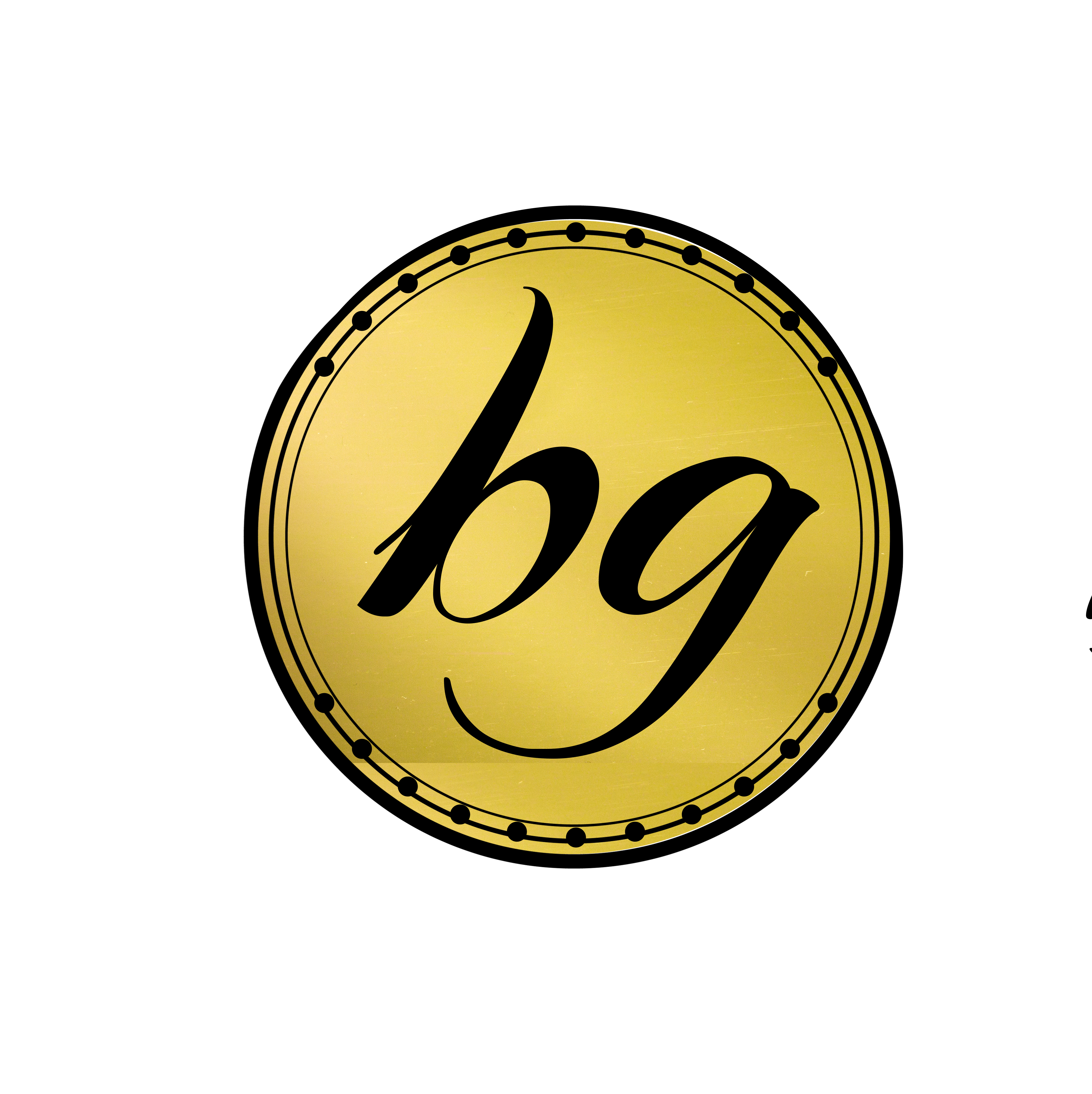Barton Teaching Method: What Parents Need to Know
 Do you believe that your son or daughter is really intelligent only to discover that she stumbles over words as she reads and/or does poorly on spelling tests? When you have your child read with you, teachers bring this up or you look at spelling test results, it’s easy to believe that he isn’t putting enough effort into developing his reading skills or practicing spelling words long enough.
Do you believe that your son or daughter is really intelligent only to discover that she stumbles over words as she reads and/or does poorly on spelling tests? When you have your child read with you, teachers bring this up or you look at spelling test results, it’s easy to believe that he isn’t putting enough effort into developing his reading skills or practicing spelling words long enough.
Another conclusion that parents and teachers sometimes reach is that Johnny isn’t interested in reading. Or, he’s young and reading comes later in boys. These are possibilities.
However, quite often they could be sign of a reading difficulty. This doesn’t mean that there’s anything wrong with them. In fact, their minds are simply hardwired to process things differently. All that needs to be done is to take a different approach.
Could it be dyslexia?
It could be. Let’s take a look at some of the ways people with dyslexia do things.
Let’s start with the early years. This section of life is important to look at whether your child is young now or to look back and see what applies to them in their past. According to Susan Barton, “If a child has 3 or more of the following warning signs, encourage that child’s parents and teachers to learn more about dyslexia.”
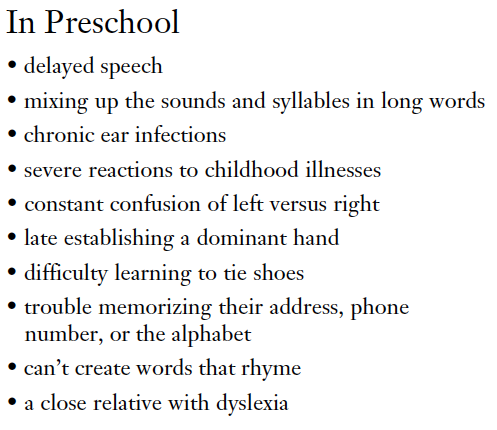
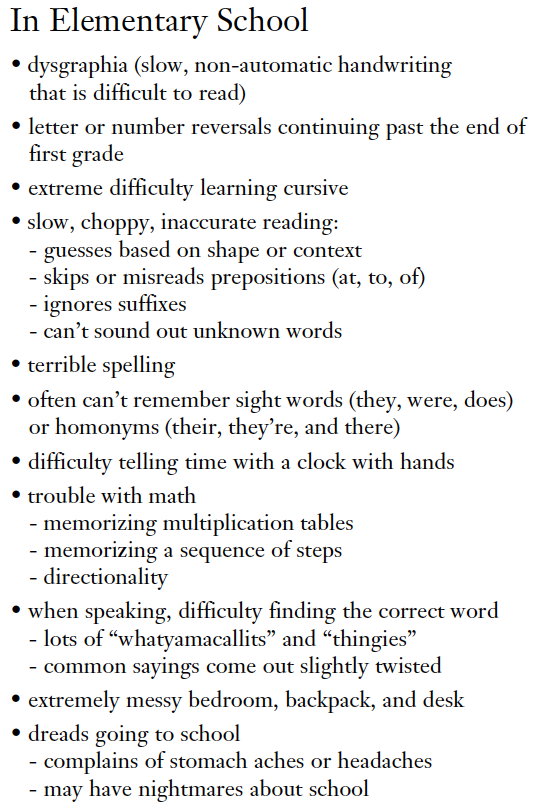
Now, let’s take a look at some of the ways teens and adults with dyslexia do things:
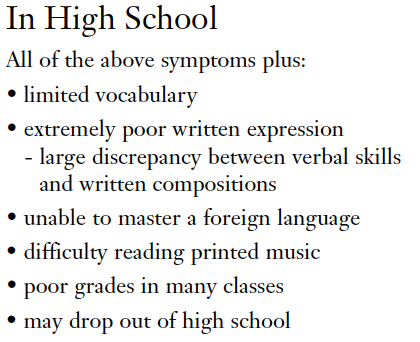
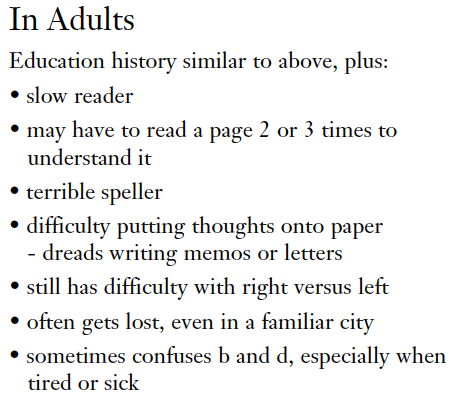
What Parents Need to Know About Barton Reading & Spelling
First, find a tutor, or become a tutor, as soon as you suspect dyslexia. The sooner you help your child, the sooner they will have the tools they need to reach their potential and regain/gain a positive sense of self worth.
Once in the program, you’ll notice that it is designed to instill confidence in students of all ages by giving them the tools they need in a way that works best. There are a bunch of reading and spelling “tricks” that are used often so that students will make a habit of checking for whatever used to confuse them so they can read and spell works correctly the first time.
An example: when a word contains one of the confusing letters (b, d, p), the tutor will prompt the student to use the balloons or pigs and/or balloons or not tricks before any attempt to read or spell a word is made.
You may have heard that there are few to no rules for spelling many words in the English language. Fortunately, this is a myth. There are many rules that are taught and practiced in a multi sensory environment.
As mentioned in one of my other articles, students will take a step back from reading and spelling outside of their lessons. This will help them to move through the Barton program smoothly and end the habits of guessing how to read and spell unknown words. As a parent, if your child is enrolled in school rather than homeschooling, please advocate for your child to have accommodations both in the classroom and for homework that will help them to succeed.
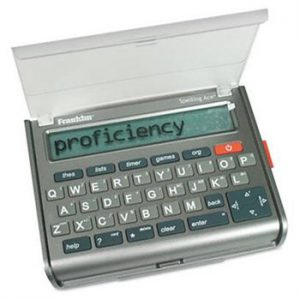 This will include using technology. You’ll find that once you reach a certain point in Barton, your child’s tutor will ask you to get a Franklin Spelling Ace to use at home and/or during tutoring sessions. The lessons starting in Book 4 teach the students how to look up words using special techniques when there are multiple ways to spell a particular sound. Susan Barton emphasizes that only the Franklin Spelling Ace be used because the instructions throughout the lessons are specific for that brand and model.
This will include using technology. You’ll find that once you reach a certain point in Barton, your child’s tutor will ask you to get a Franklin Spelling Ace to use at home and/or during tutoring sessions. The lessons starting in Book 4 teach the students how to look up words using special techniques when there are multiple ways to spell a particular sound. Susan Barton emphasizes that only the Franklin Spelling Ace be used because the instructions throughout the lessons are specific for that brand and model.
It is important it is to build them up and help them have a great self esteem. This is CRUCIAL, so I am dedicating part 2 of this series to Words of Encouragement. Please find ways to help your child to see their talents and value. Much of that will come from you and your example. People outside the family take cues about what is ok to say and expect from your child.
Learn as much as you can about dyslexia as you can. There are a bunch of TED talks, there’s the Barton Reading & Spelling site, as well as other resources out there to help you gather information.
Get in touch with other parents who are either going through the same experience or already have. This will help boost your confidence and give you more ideas to use at home. In turn, your child(ren) will gain a lot.
Read to them daily, or several times a day is even better. Interactive reading is best. Ask questions such as: What do you think will happen next? Would you do what [the character’s name that just did something] did? What would you do differently? Would you like to try that, too? Just because they’re not reading doesn’t mean that they are not learning and growing intellectually from other sources such as field trips and you reading to them.
Why am I so passionate about dyslexia?
I am because I was one of the slow readers and often guessed. I can write with my left hand almost as well as my right. The list goes on and on.
Though I was never formally labeled with dyslexia or even heard about it until college, I fit the description.
But that’s not enough to get me to spend my time writing about dyslexia. First, it’s my kids’ experiences that inspired me to learn more about dyslexia. I have seen their lightbulbs light up as we progress through Barton. I watched one of my sons struggle to write his own name in 3rd grade and I am eternally grateful that his virtual academy teacher introduced us to Barton Reading and Spelling. Just a few years later, he was reading Lord of the Rings (results not typical), which I find to be a painful book to read because the names of the characters are so difficult and similar, making keeping the characters straight quite the challenge.
Then, he wasn’t the only one in my family who had similar breakthroughs.
I starting writing this so that I might change the way other people out there look at dyslexia, and more importantly help those with dyslexia get the tools that will surely work for them and help them be the best they can be. I was inspired by others and I want to inspire you to learn more and make a change in your life as well as the lives of others.
Please note: I do not receive any compensation from Susan Barton, Barton Reading & Spelling, or Bright Solutions. They are not sending any tutoring students my way.
I can tell that you are invested in your child’s future. In my next article, I offer words of encouragement. You as a parent, as well as your child, are probably are in desperate need of it right about now.
Related articles
BARTON READING AND SPELLING SYSTEM
This is our #1 post because parents and educators are seeking solutions for adults and children who are struggling to read. Find out how the Barton Reading & Spelling Program works and what you need to get started.
Barton Games for Book 2
Are you tutoring someone who has a hard time associating letters with the sounds they make as taught in Book 2? I created 2 games to help my son move forward when he got stuck in lesson 1 of Book 2. They’re free and I’ll explain how we play them.
Barton Teaching Method: Tips for Tutors
You may not have access to an experienced guide to share some of the most important tips for tutoring. Let me be one of your guides. Based on my experience and training, these are crucial, must-have tips.


